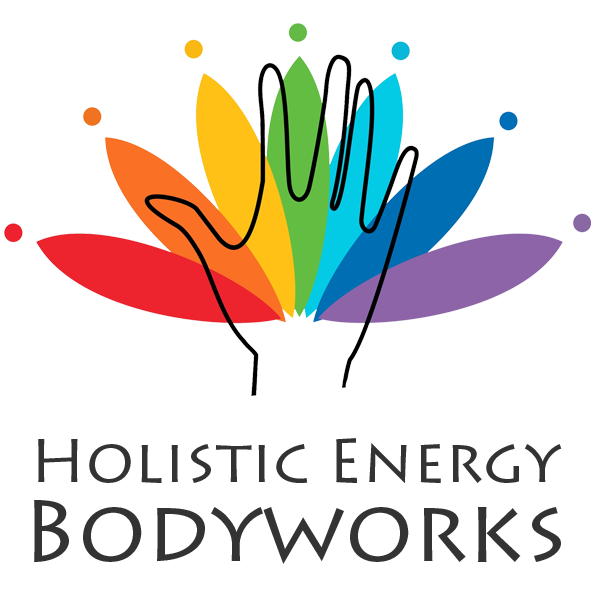Depression Energy Healing by Holistic Energy Bodyworks
Energy Therapy for Depression. Rekindle your vitality and restore emotional balance through our holistic approaches.
Holistic Energy Healing for Depression Relief, Our Practitioners Empower Your Emotional Wellness
Depression has become a prevalent concern affecting millions of individuals across all demographics. It is not merely a fleeting feeling of sadness but a complex mental health condition that can significantly impair one’s quality of life. At Holistic Energy Bodyworks, we recognize the multifaceted nature of depression and are dedicated to offering supportive healing modalities that address both the emotional and energetic imbalances associated with this condition. Through holistic energy healing, we aim to empower individuals to reclaim their vitality, find balance, and foster emotional well-being.
Medical Definition of Depression
Medically, depression is characterized as a mood disorder that causes persistent feelings of sadness and loss of interest. It goes beyond an occasional feeling of unhappiness and can affect how an individual thinks, feels, and handles daily activities. According to the Diagnostic and Statistical Manual of Mental Disorders (DSM-5), depression can manifest in several forms, including major depressive disorder, persistent depressive disorder (dysthymia), bipolar disorder, and seasonal affective disorder (SAD).
For an official diagnosis, a person typically must exhibit symptoms for at least two weeks that represent a change from previous functioning. These include significant weight loss or gain, insomnia or hypersomnia, fatigue, feelings of worthlessness, and recurrent thoughts of death or suicide. The clinical implications of depression are vast, often leading to other health issues, reduced functional abilities, and an overall decline in life satisfaction.
Common Symptoms of Depression
The symptoms of depression can vary widely from person to person, but some of the most common indicators include:
- Persistent Sadness: A continuous feeling of sadness or a low mood that doesn't go away, impacting daily life and social interactions.
- Loss of Interest: A significant decrease in interest or pleasure in previously enjoyed activities, hobbies, or relationships, often referred to as anhedonia.
- Fatigue: Persistent tiredness or a sense of lethargy, even after rest, making everyday tasks feel overwhelming or exhausting.
- Sleep Disturbances: Insomnia, hypersomnia, or disrupted sleep patterns can all be associated with depression. Individuals may find it difficult to fall asleep or stay asleep or may experience excessive sleepiness.
- Changes in Appetite: Whether it's a loss of appetite leading to weight loss or increased cravings for food resulting in weight gain, changes in eating habits are common.
- Difficulty Concentrating: A person may experience problems with focus, memory, or decision-making, often described as "brain fog."
- Feelings of Worthlessness or Guilt: An individual may have persistent negative thoughts about themselves, feeling inadequate or guilty about perceived failures or shortcomings.
- Physical Symptoms: Headaches, digestive issues, or chronic pain without a medical reason can often accompany depression.
Common Causes of Depression
Understanding the causes of depression is crucial in addressing this complex condition. Some common factors that contribute to the onset of depression include:
- Genetics: A family history of depression can increase one's risk due to inherited genetic factors that affect brain chemistry and mood regulation.
- Biochemical Factors: Imbalances in neurotransmitters, such as serotonin, dopamine, and norepinephrine, can impact mood and are often associated with depressive disorders.
- Environmental Stressors: Life events such as trauma, loss of a loved one, financial difficulties, or prolonged stress can trigger depression, especially in individuals already predisposed to mental health issues.
- Chronic Illness: Living with ongoing medical conditions can contribute to feelings of helplessness and sadness, leading to depression.
- Substance Abuse: Alcohol and drug abuse can exacerbate depressive symptoms and lead to a cycle of dependency and depression.
- Hormonal Changes: Fluctuations in hormones—such as those experienced during pregnancy, postpartum, menopause, or thyroid imbalances—may contribute to depressive states.
How the Medical Community Treats Depression
The traditional medical approach to treating depression often includes a combination of psychotherapy, medication, and lifestyle changes. Psychotherapy, or talk therapy, is a primary treatment method, allowing individuals to explore their thoughts and feelings with a trained professional. Cognitive Behavioral Therapy (CBT) and interpersonal therapy are commonly used techniques that help patients identify and address negative thought patterns and behaviors.
Medication is typically prescribed to help manage symptoms and balance neurotransmitters. Antidepressants, mood stabilizers, or sedatives may be recommended based on the severity and type of depression. While many find relief through medication, it is crucial to monitor effectiveness and any possible side effects closely.
Depression Prescriptions and Their Side Effects
Commonly prescribed medications and their common side effects for depression include:
- Selective Serotonin Reuptake Inhibitors (SSRIs): Medications like fluoxetine (Prozac) and sertraline (Zoloft) help increase serotonin levels in the brain. Potential side effects can include nausea, insomnia, sexual dysfunction, and weight gain.
- Serotonin-Norepinephrine Reuptake Inhibitors (SNRIs): These medications, such as venlafaxine (Effexor), target both serotonin and norepinephrine. Side effects may include increased blood pressure, nausea, and withdrawal symptoms if stopped suddenly.
- Tricyclic Antidepressants (TCAs): Older medications like amitriptyline are sometimes prescribed but can lead to drowsiness, dry mouth, constipation, and weight gain.
- Atypical Antidepressants: Medications like bupropion (Wellbutrin) affect neurotransmitters differently, with potential side effects including insomnia, dry mouth, and anxiety.
Though many individuals find relief from symptoms through these medications, the side effects can discourage compliance with treatment, prompting some to seek alternative therapies.
How Holistic Energy Healing Treats Depression
At Holistic Energy Bodyworks, we believe in the power of holistic energy healing to treat depression by addressing the underlying emotional, energetic, and spiritual dimensions of the condition. Energy healing methods offer complementary pathways to balance and wellness, enhancing emotional well-being and resilience. Here we provide three examples of our energy healing modalities, but our qualified energy practitioners will customize a treatment plan based you your exact needs.
- Ida, Pingala, and Sushumma are methods that combines ancient wisdom with modern practices to create a multi-dimensional healing approach. By focusing on harmonizing the body’s energy fields, this technique helps to release emotional blockages and facilitate a deeper connection to one’s inner self. Individuals often report enhanced clarity, emotional stability, and rejuvenation after undergoing Sushumma Energy Healing sessions.
- Distance Healing allows our practitioners to send healing energy across distances, which can be especially beneficial for those unable to visit in-person due to the intensity of their depressive symptoms. This modality emphasizes the concept that energy is not confined by physical boundaries, allowing individuals to receive support and healing from the comfort of their homes. Clients experience a reduction in anxiety and a sense of comfort and connection through this energetic flow, leading to improved emotional health.
- Meridian Healing involves working with the body’s energy pathways to promote healing and balance. Practitioners identify meridian points on the body and use gentle techniques to restore energy flow. This method can effectively relieve emotional tension, foster relaxation, and create a sense of inner peace. Chronic emotional patterns associated with depression may begin to dissipate as individuals engage in this energetic balancing practice, paving the way for greater wellness.
Together, these energy healing modalities offer individuals alternative avenues of support, encouraging empowerment and emotional growth as they navigate the challenges of depression.
What Can Happen If Depression is Left Untreated
Failing to address depression can lead to serious repercussions, affecting various aspects of an individual's life. Untreated depression often leads to:
- Increased Severity of Symptoms: Over time, depressive symptoms may worsen, leading to a greater inability to function in daily life, stress escalations, and complications in relationships and responsibilities.
- Development of Co-Occurring Disorders: Individuals may turn to substances as a means of coping, leading to substance abuse or other mental health disorders, such as anxiety or eating disorders.
- Physical Health Declines: Chronic depression can contribute to the onset or worsening of physical health issues, such as heart disease, diabetes, and obesity, due to decreased motivation for self-care, exercise, and healthy eating.
- Suicidal Thoughts or Actions: In severe cases, untreated depression can lead to thoughts of self-harm or suicide, requiring urgent attention and care.
Given the potential consequences of untreated depression, it is essential to seek appropriate support and explore both traditional and holistic healing approaches.
Summary
Depression is a pervasive and complex condition that affects countless individuals, often creating an overwhelming sense of sadness and hopelessness. While traditional medicine provides valuable tools for managing depression, holistic energy healing offers complementary and effective pathways to emotional balance and well-being. Practices such as Sushma Energy Healing, distance healing, and meridian healing address the multifaceted nature of depression, empowering individuals to reclaim their lives and find renewed hope and vitality.
At Holistic Energy Bodyworks, we are committed to supporting individuals on their healing journeys, helping them to navigate their emotional landscapes and cultivate a deeper sense of peace in their lives.
Contact Our Holistic Energy Bodyworks Practitioners for a Free Consultation for Depression Energy Healing
If you or someone you know is struggling with depression and seeking alternative support through energy healing, we invite you to connect with us at Holistic Energy Bodyworks. Our compassionate practitioners are dedicated to guiding you on your journey toward emotional wellness and balance. Contact us today for a free consultation and take the first step toward transforming your life through holistic energy healing. Your path to healing starts here!
Please contact us today!
Additional References
- Bright light therapy can help ease SAD, major depression, and perinatal depression - Harvard Health Publishing at Harvard Medical School
USA
110-11 Queens Boulevard, Apt. 9K
Forest Hills
New York, NY 11375
+1 (347) 870-3471
SPAIN
Vía Laietana 54 — 2º, Puerta 205
Barcelona, 08003 SPAIN
and
Colldeplana s/n
Lluçà, Barcelona, 08514 SPAIN
Tel. +34 679 22 97 44
ISRAEL
Balfour 48 3/11
Tel Aviv
Tel +972 52-831-9766
WORLDWIDE
Holistic Energy Bodyworks Practitioners can connect, and provide healing services and consultations through Zoom.
Please contact us to learn more.




